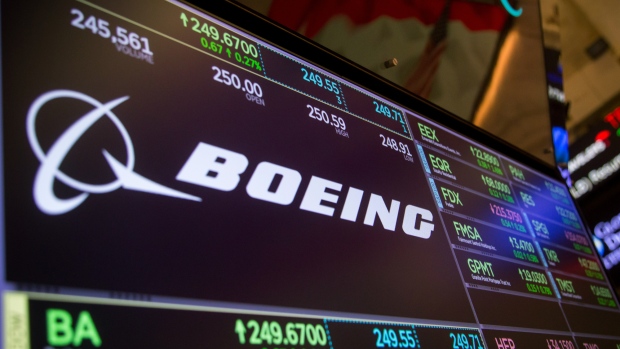Jul 5, 2018
Boeing, Embraer forge US$4.75B commercial jet venture
, Bloomberg News

Boeing Co. is forming a US$4.75 billion venture with long-time industrial partner Embraer SA, a move that will expand the U.S. planemaker’s manufacturing base abroad while extending its reach into the market for small jetliners.
Under a preliminary deal, Boeing will own 80 per cent of a partnership controlling Embraer’s commercial airplane and services business while the Brazilian manufacturer holds 20 per cent, the companies said in a statement Thursday. The tie-up caps years of talks between the two, while extending the duopoly held by Boeing and Airbus SE as competitive threats emerge from rivals in Russia, Japan and China.
By adding Embraer’s E-Jet family to its portfolio, Boeing bolsters its arsenal in the newest battlefront with Airbus: the market for 100-seat planes. The European aerospace giant took control of Bombardier Inc.’s CSeries jet on July 1, through a joint venture it forged with no out-of-pocket cost. Boeing was left without a comparable offering, while Embraer, Bombardier’s main rival, faced a tough new competitor in Airbus’s global marketing organization.
A Bombardier spokesperson told BNN Bloomberg via email that the Boeing-Embraer partnership is a reactionary move.
"This is clearly a reaction to our partnership with Airbus, which is real and already moving forward at full throttle," teh spokesperson said. "Irrespective of whether Boeing and Embraer finalize their partnership, the C Series is simply the better aircraft; the best in its class."
Embraer, a jewel of Brazilian industry, will remain a separate company that makes military and private jets while reaping a revenue stream from the new partnership. The structure, along with the company’s flagging sales and an increasingly challenging market, helped win the support of the Brazilian government.
Boeing was little changed at US$332.90 in early trading in New York. Finalization of the deal is expected to continue in the coming months, the companies said. Assuming the pact wins regulatory approval, the transaction is expected to close by the end of next year. The partnership is expected to add to Boeing’s earnings beginning in 2020.
Engineering Expertise
For years, Boeing and Airbus focused on larger, more-profitable jetliners and shifted away from the smaller planes, which have similar development costs but sell for lower prices. Airbus’s deal with Bombardier, and Boeing’s pact with Embraer, signal that the big planemakers intend to deny a foothold in the lucrative narrow-body market to ambitious newcomers, such as Commercial Aircraft Corp. of China.
Embraer brings engineering talent that Boeing could tap for the new midrange jet on its drawing board, dubbed the 797 by analysts. Embraer also has lower-cost production capabilities that the Chicago-based planemaker could use to build components such as actuators and landing gear as it brings more supplier work in-house, said Canaccord Genuity analyst Ken Herbert.
The Brazilian company has overtaken Bombardier as the largest manufacturer of regional jets while burnishing its reputation for engineering prowess. In an industry where product delays are the norm, Embraer has introduced 10 all-new aircraft over the past 15 years, largely on-budget and on-time, Ron Epstein, an analyst at Bank of America Corp., wrote earlier this year.
The Sao Jose dos Campos, Brazil-based planemaker debuted the first of its E2 family of upgraded jets this year. The E190-E2 competes directly with Bombardier’s smallest C Series, seating as many as 114 travelers and powered by the same Pratt & Whitney geared turbofans as the Canadian jet.
Created in 1969 by the Brazilian government and privatized in 1994, Embraer has been touted as a source of national pride for the commodities-driven country and an example of efficiency and innovation, though corruption scandals in the past few years have tainted that image.
